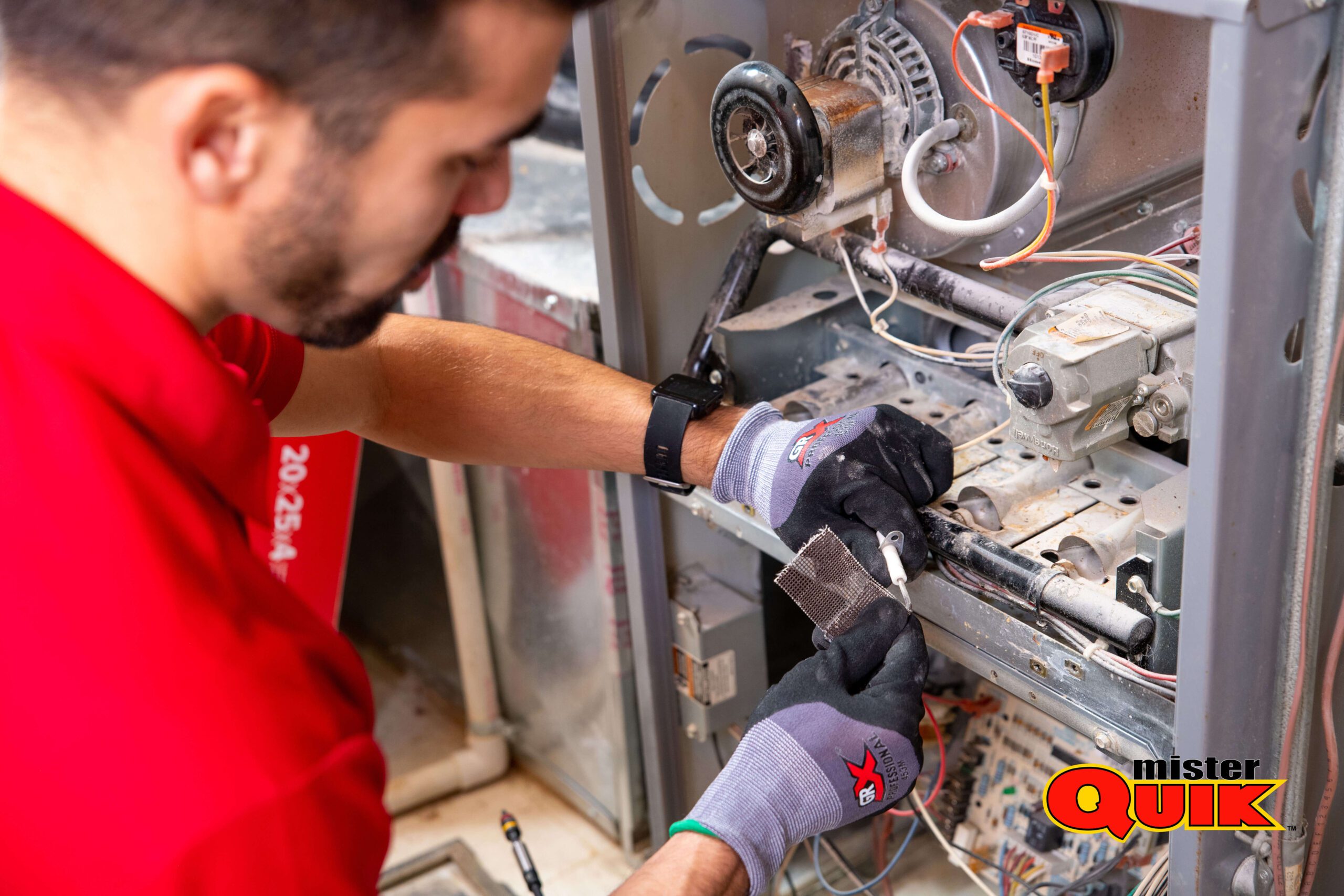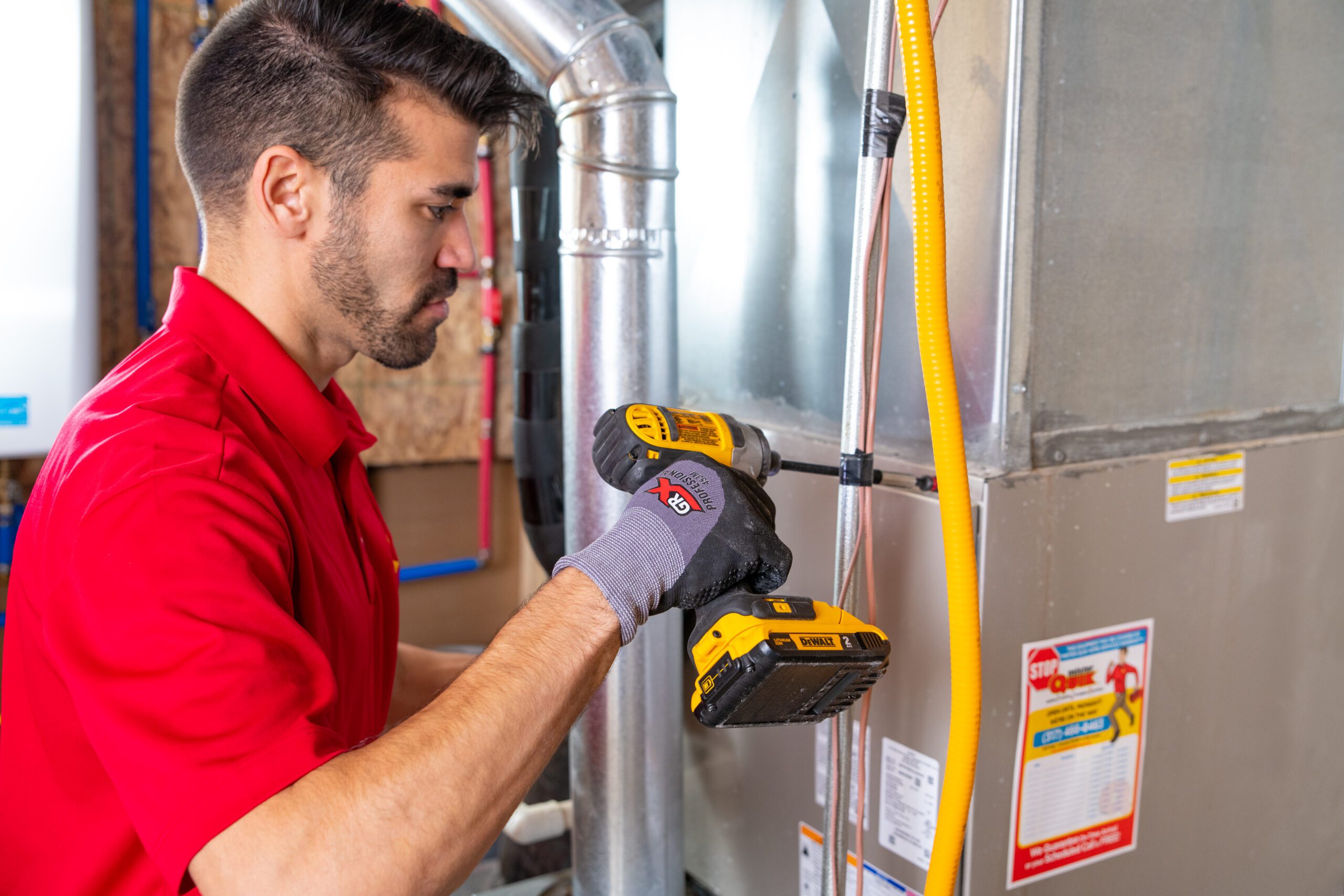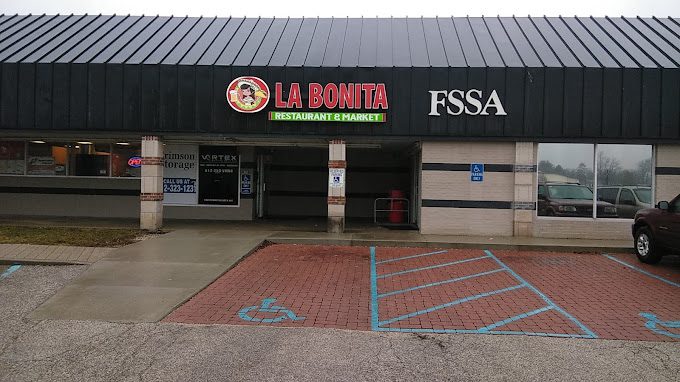Best HVAC Replacement Bloomington
Schedule on your own without making a call. Click the button below to get started!

Preventive HVAC Maintenance
Living in Bloomington means navigating scorching summers and chilly winters, making your HVAC system a crucial comfort provider. But just like any hero, your HVAC needs regular maintenance to perform at its best. Enter preventive maintenance, your secret weapon for a comfortable and cost-effective home.
Benefits of Preventive Maintenance:
- Improved efficiency: Regular checkups optimize performance, leading to lower energy bills.
- Extended lifespan: Timely repairs and part replacements prevent small issues from snowballing into expensive breakdowns.
- Enhanced comfort: Consistent airflow and temperature control ensure year-round comfort.
- Reduced risk of emergencies: Identifying potential problems early minimizes the chance of unexpected system failures.
- Peace of mind: Knowing your HVAC is in good hands offers worry-free comfort.
What’s Included in Preventive Maintenance:
- Filter changes: Dirty filters restrict airflow, reducing efficiency and comfort. Change them monthly during peak season and quarterly otherwise.
- Coil cleaning: Dust and debris buildup on coils impacts efficiency. Have them professionally cleaned annually.
- System inspections: Technicians check components, identify potential issues, and recommend repairs or replacements.
- Thermostat calibration: Ensure accurate temperature control for optimal comfort and efficiency.
Investing in preventive maintenance is an investment in your comfort, budget, and peace of mind. With the right plan and local heroes on your side, you can ensure your Bloomington home enjoys optimal comfort year-round, without unexpected emergencies or discomfort.
HVAC System Maintenance
Regular maintenance is key to enjoying optimal comfort, saving money, and extending the lifespan of your HVAC system. With the information and resources provided, you can make informed decisions and ensure your home remains a haven of comfort throughout the year.
Why is Maintenance Important in Bloomington?
Bloomington endures hot, humid summers and cold winters, putting stress on your HVAC system. Regular maintenance ensures it can handle these fluctuations efficiently.
High pollen counts in spring and ragweed season in fall highlight the importance of clean air filters and proper system cleaning to minimize allergens circulating in your home.
Timely maintenance prevents small issues from turning into expensive repairs. Studies show regular maintenance can save homeowners 10-20% on energy bills.
Properly maintained systems last longer, saving you the cost of premature replacements.
Regular maintenance on HVAC (Heating, Ventilation, and Air Conditioning) systems is essential for optimal performance and longevity. Tasks include inspecting and replacing air filters, cleaning coils and ducts, lubricating moving parts, checking thermostat settings, and inspecting electrical connections. These measures not only ensure efficient operation but also contribute to better indoor air quality and energy savings. Additionally, scheduling professional inspections and tune-ups annually can help identify and address potential issues before they escalate, ultimately extending the lifespan of the system and minimizing the need for costly repairs.
The four main types of HVAC maintenance are preventive, predictive, reactive, and proactive. Preventive maintenance involves routine inspections and tasks to prevent breakdowns. Predictive maintenance utilizes data analysis and technology to anticipate issues before they occur. Reactive maintenance addresses immediate repairs in response to failures. Proactive maintenance focuses on continuous improvement and efficiency enhancements to optimize system performance and longevity. Each type plays a crucial role in ensuring the reliability and efficiency of HVAC systems.
HVAC preventive maintenance is a proactive approach to maintaining heating, ventilation, and air conditioning systems to ensure their optimal performance and longevity. It involves scheduled inspections, cleanings, and adjustments of various components such as filters, coils, and belts to prevent potential breakdowns and inefficiencies. This routine upkeep helps identify and address minor issues before they escalate into major problems, improving energy efficiency, indoor air quality, and overall comfort while reducing the likelihood of costly repairs or premature system replacements. Additionally, HVAC preventive maintenance programs often include documentation of service history and recommendations for future enhancements to further optimize system operation.
The duration of HVAC preventative maintenance varies depending on factors such as the size of the system, its complexity, and the specific tasks involved. Typically, a comprehensive maintenance check can take anywhere from one to three hours for residential systems, while larger commercial or industrial systems might require several hours or even a full day. Regular maintenance includes tasks like inspecting and cleaning components, testing controls, and lubricating moving parts, all aimed at ensuring optimal performance, energy efficiency, and longevity of the HVAC system.
Avoiding HVAC maintenance can lead to a range of costly consequences. Without regular servicing, your system becomes susceptible to issues such as decreased efficiency, increased energy consumption, and eventual breakdowns. This neglect can result in higher utility bills, discomfort due to inconsistent heating or cooling, and potentially expensive repairs or even premature system replacement. Additionally, neglected HVAC systems can pose health risks by circulating allergens and contaminants throughout your home. Overall, prioritizing regular maintenance helps to ensure optimal performance, prolong system lifespan, and maintain indoor air quality.
Best HVAC Replacement Bloomington Technician
HVAC Maintenance Technicians play a crucial role in keeping our homes and businesses comfortable by ensuring heating, ventilation, and air conditioning (HVAC) systems function properly.

- Conduct routine inspections, cleaning, and lubrication of HVAC components to prevent issues and ensure optimal performance.
- Repair malfunctions in various HVAC equipment, including furnaces, air conditioners, heat pumps, and ventilation systems.
- Install new HVAC systems efficiently and according to safety and building codes.
- Prioritize safety by complying with industry regulations and using appropriate personal protective equipment when handling electrical and mechanical components.
- Communicate effectively with customers, explain technical issues in understandable terms, and provide recommendations for maintenance or repairs.
- Look for technicians with relevant certifications and licenses.
- Read online reviews and customer testimonials.
- Ask for recommendations from friends, family, or neighbors.
- Get quotes from multiple companies and compare services and prices.
By understanding the valuable role of HVAC Maintenance Technicians and their contributions to our comfort, health, and energy efficiency, we can appreciate their expertise and seek qualified professionals to maintain our essential HVAC systems.
HVAC Maintenance Cost
Maintaining your HVAC system is crucial for year-round comfort and preventing costly breakdowns. The cost of HVAC maintenance can vary depending on several factors, including:

Larger systems and more complex systems will typically cost more to maintain.

Most experts recommend having your HVAC system inspected and serviced at least once a year, preferably before the start of each heating and cooling season.

Some maintenance plans may only include basic tasks like filter changes and inspections.
HVAC Maintenance Checklist
Maintaining your HVAC system isn’t just about staying comfortable throughout the year, it also saves you money on energy bills and prevents costly breakdowns. Here’s a comprehensive checklist tailored for Bloomington’s specific climate and common concerns:
1. Seasonal Tasks:
- Spring (Before Cooling Season):
- Change air filters, replace with MERV 8-11 filters monthly during peak season (spring and fall).
- Clean or replace air vents and registers
- Schedule an inspection and tune-up to ensure your system is operating efficiently before the hot summer months.
- Check condensate drain lines.
- Fall (Before Heating Season):
- Repeat air filter and vent cleaning.
- Schedule another inspection and tune-up to optimize performance for efficient heating.
- Inspect and clean furnace burners for proper heating and safety.
- Test carbon monoxide detectors to ensure they’re functioning properly for safety.
- Spring (Before Cooling Season):
2. Year-Round Tasks:
- Monthly: Check thermostat settings for optimal comfort and efficiency.
- Quarterly (except peak season): Change air filters.
- Bi-annually: Visually inspect your system for debris or leaks.
- Annually: Schedule professional duct cleaning, especially if allergies are a concern.
- Monthly: Check thermostat settings for optimal comfort and efficiency.
.
HVAC Annual Maintenance
By following this guide and prioritizing regular maintenance, you can ensure your home enjoys year-round comfort, efficiency, and cost savings. Let your HVAC system be your partner in creating a healthy and comfortable living environment.
Air filter change: Replace with MERV 8-11 filter for optimal efficiency and allergen capture. Air vent and register cleaning: Remove dust and debris for improved airflow and allergen control. Professional inspection and tune-up: Ensure your system is operating efficiently before the hot summer months.
Repeat air filter and vent cleaning.
Professional inspection and tune-up: Optimize performance for efficient heating.
Furnace burner inspection and cleaning: Crucial for proper heating and safety.
Carbon monoxide detector test: Ensure they're functioning properly for safety.
- Replace if dirty to improve airflow.
- Filters should be correctly sized for the system.
- Check thermostat settings to ensure accuracy for proper temperature control.
- Replace batteries to prevent thermostat malfunctions due to low power.
- Clean evaporator and condenser coil by removing dirt and debris.
- Inspect ductwork and seal any leaks to improve efficiency.
- Inspect wiring and connections to look for signs of wear or damage.
- Test electrical components to ensure proper function and safety.
- Lubricate bearings and motors to ensure smooth operation.
- Tighten loose connections to prevent wear and tear on components.








